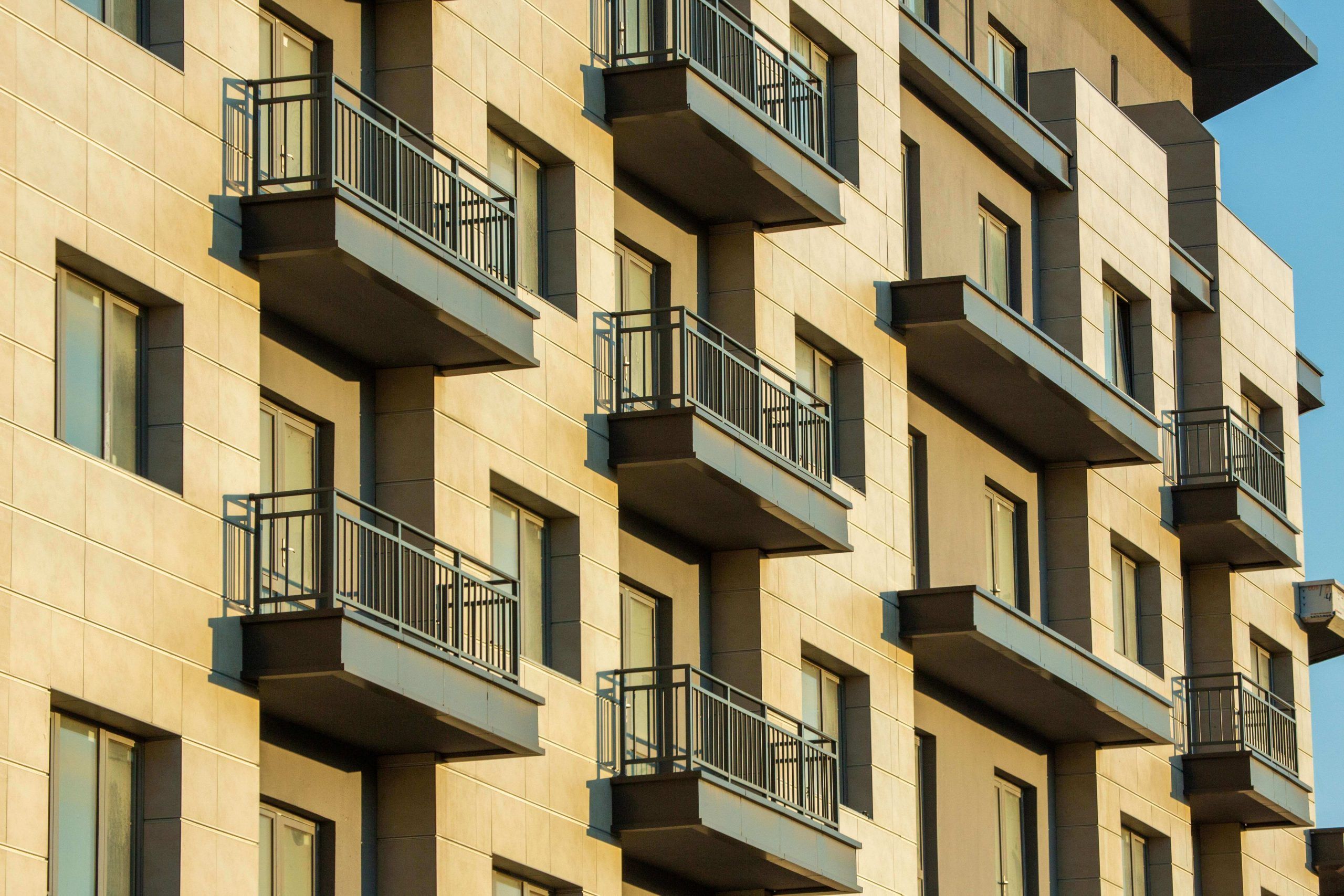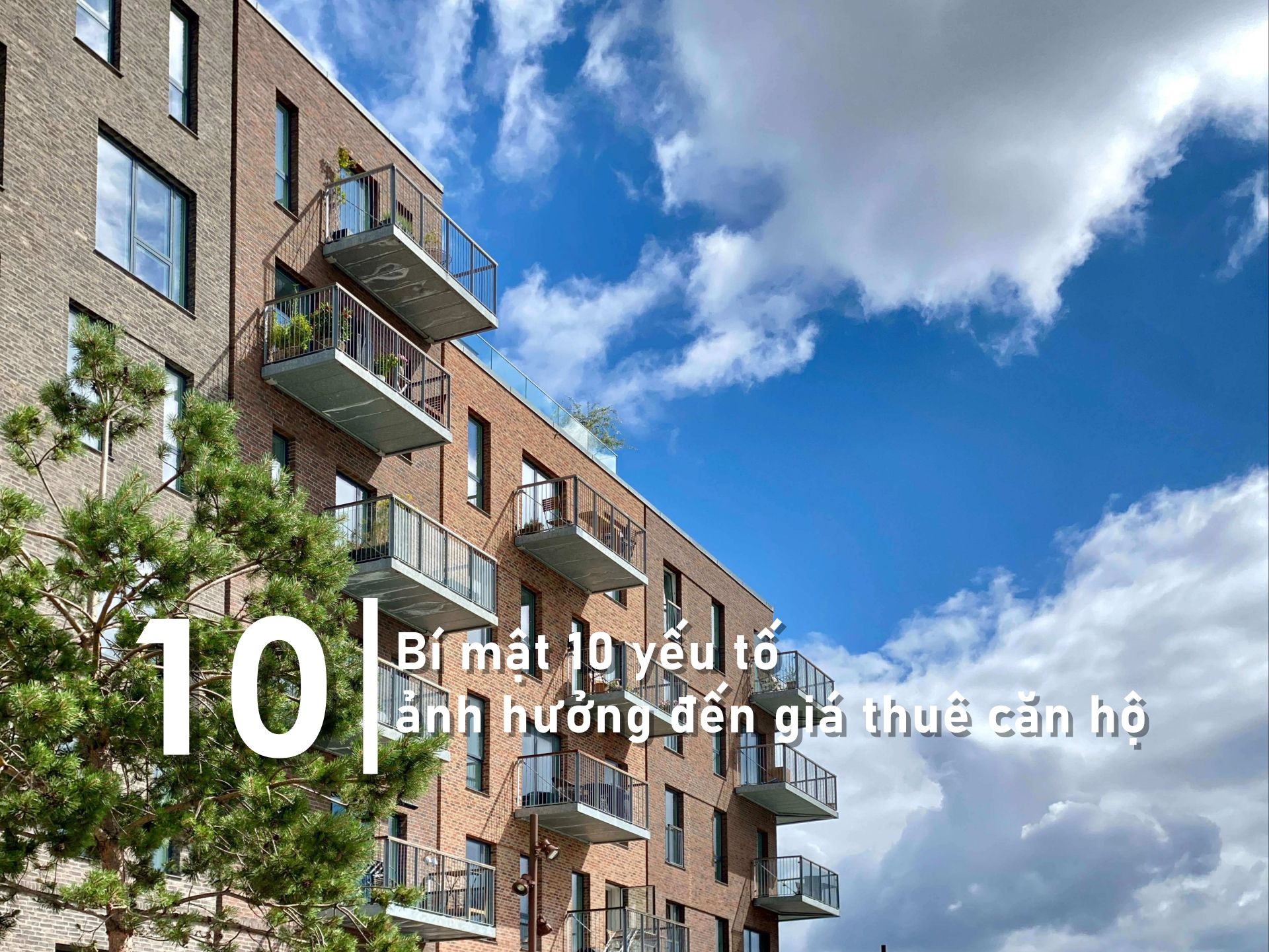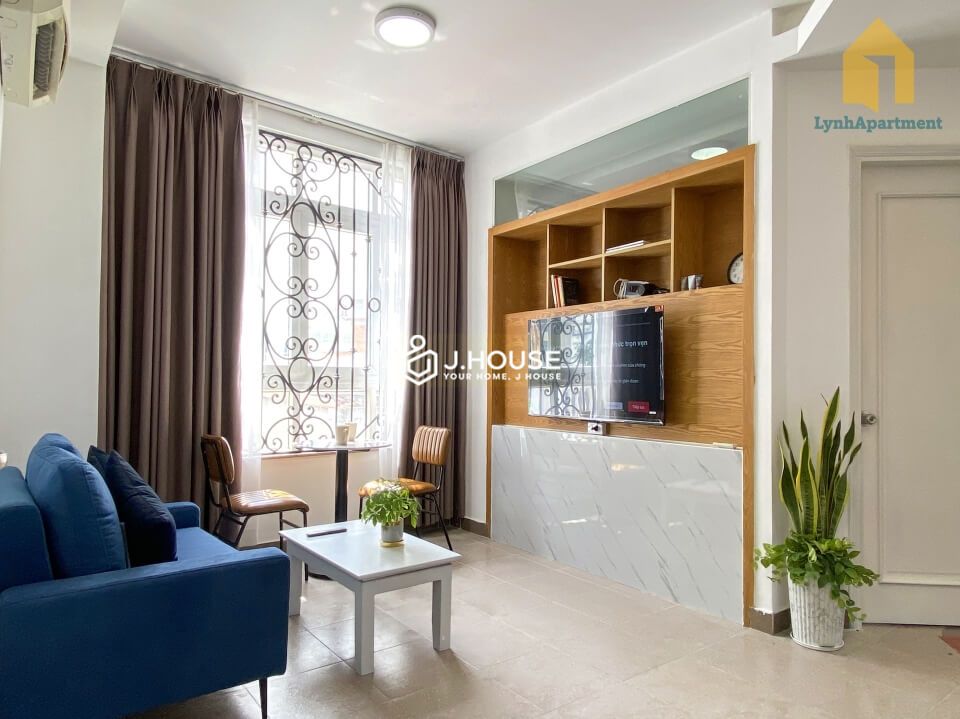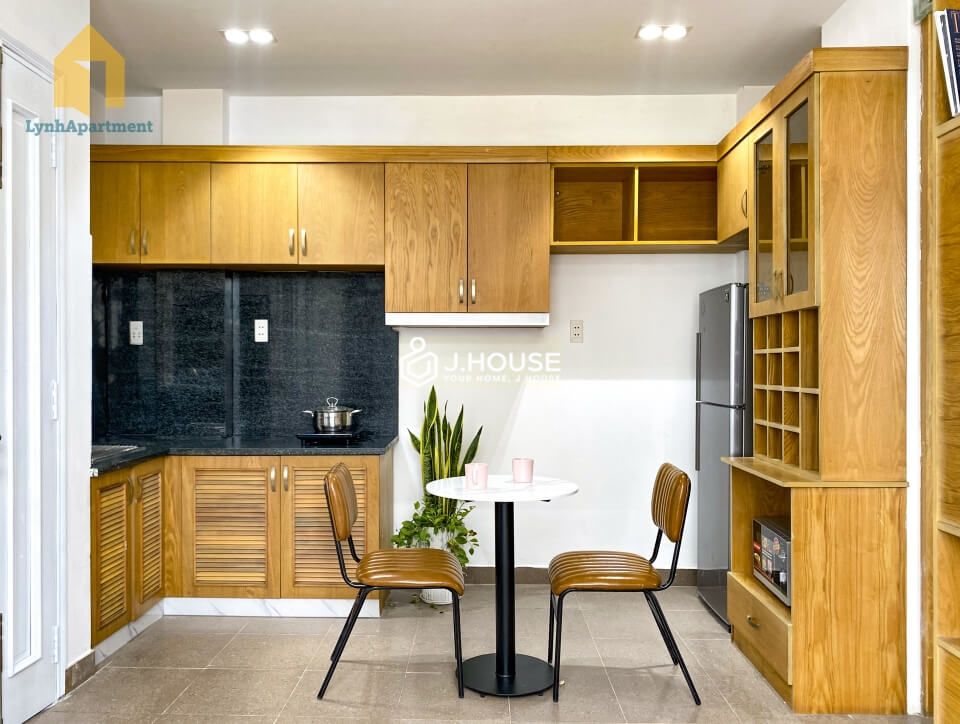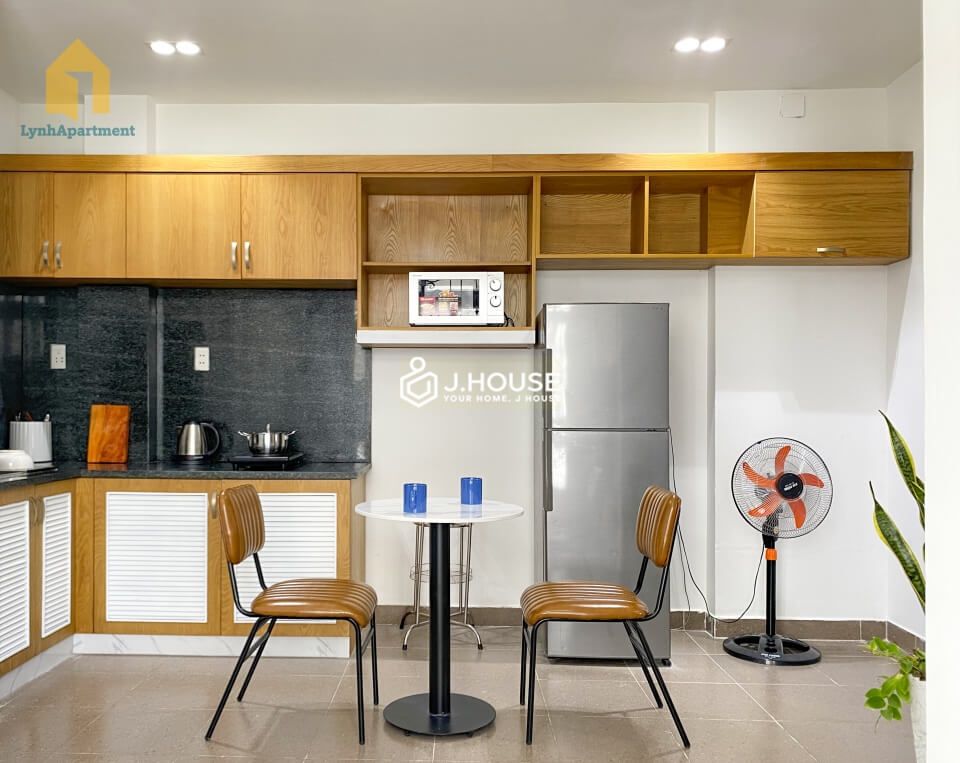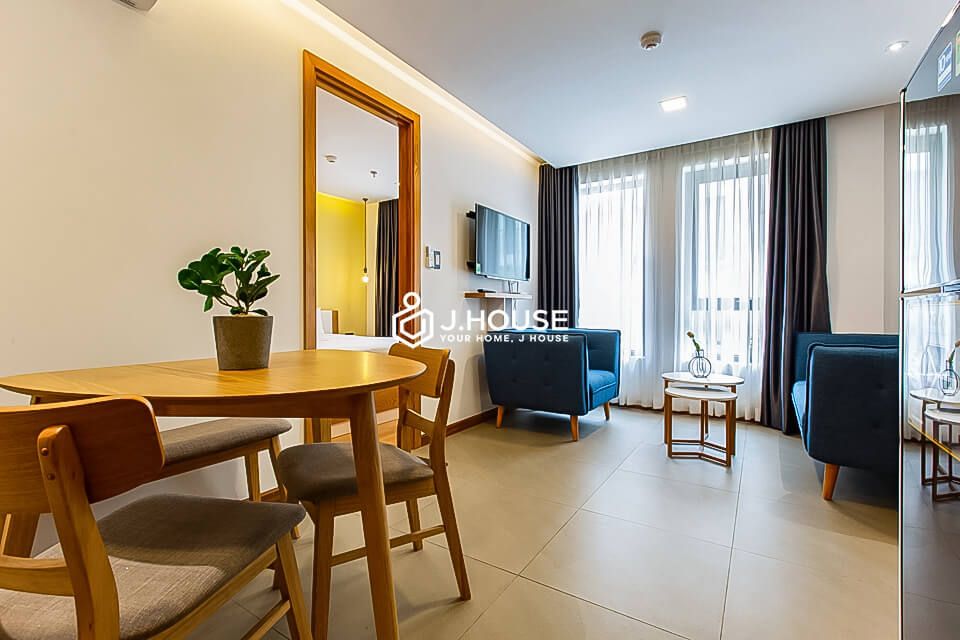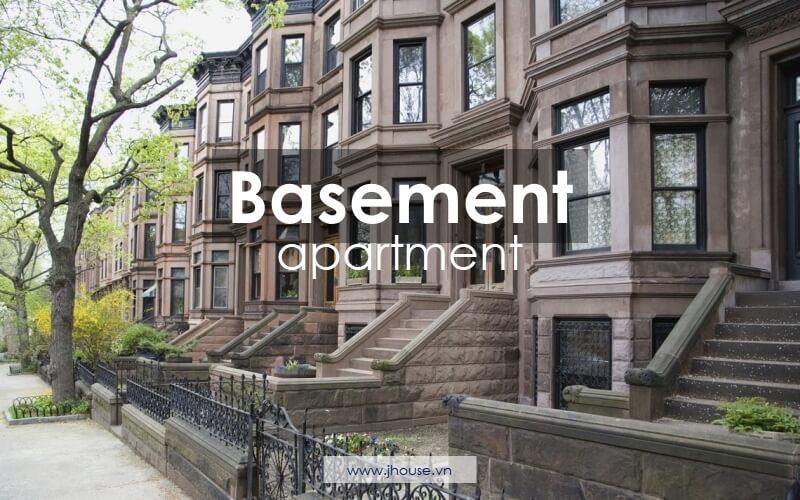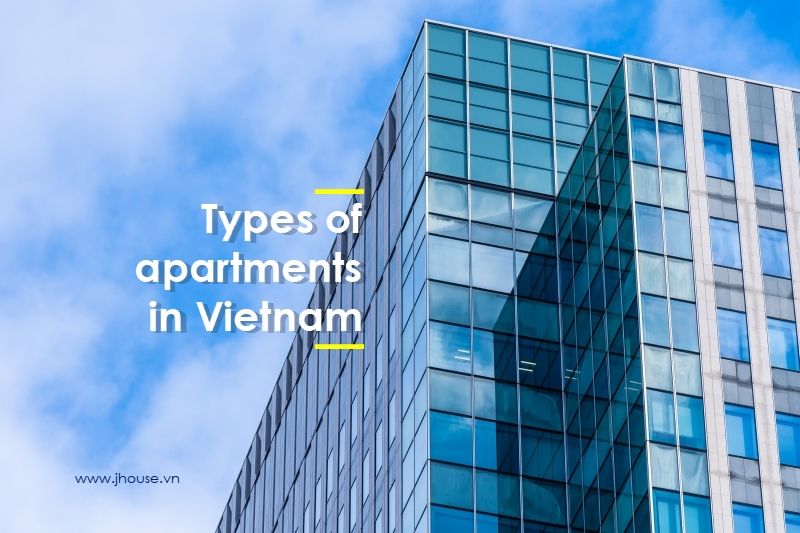Latest Posts
Latest Properties
[:en]Register temporary for foreigners when renting a house in Vietnam[:vi]Đăng ký tạm trú cho người nước ngoài khi thuê nhà tại Việt Nam[:]
[:en]
Are you a property owner, landlord, accommodation owner, etc. are renting a house to foreigners, or you have foreign friends/relatives living in Vietnam and want to know about regulations, procedures and fees for temporary residence registration for foreigners in Vietnam.
If you are a foreigner in Vietnam for any purpose (tourism, business travel, work, etc.), you need to be registered for temporary residence in Vietnam in accordance with the law to ensure your rights and interests for foreigners in Vietnam.
Let JHouse provide you with information about temporary residence registration for foreigners and how it works in Vietnam. The article will have many legal documents to compare and many other useful information, so please be patient and do not skip any information. We are sure it will be useful to you. Let’s just get started.
Register temporary for foreigners when renting a house in Vietnam
1. What is registration of accommodation for foreigners?
Temporary residence registration is an act by which a property owner declares to the local police that there are foreigners staying at his house within 12 hours (or 24 hours) from the time the foreigners enter in the accommodation.
2. Why is it necessary to register temporary residence for foreigners when renting a house?
- For property owners: To prove the compliance and execution of the regulations on accommodation business of Vietnamese law. No penalty for not registering temporary residence for foreigners when renting a house and to supervise tenants.
- For foreigners when renting a house: To prove that foreigners comply and execute the provisions of Vietnamese law. No penalty for not being registered for temporary residence. And especially, temporary residence confirmation is also an extremely important document for foreigners to: extend visas, apply for temporary residence cards, verify criminal records and supplement work documents
3. Is there any law on temporary residence registration for foreigners when renting a house?
Vietnamese law has regulations on temporary residence registration for foreigners when renting a house in Vietnam. Specifically applied by the following legal documents:
- Law on entry, exit, transit and residence of foreigners in Vietnam. Issued on 16/06/2014. See details of Law No. 47/2014/QH13.
- Amending the law, supplementing a number of conditions of the Law on entry, exit, transit and residence of foreigners in Vietnam. Issued on 25/11/2019. See details of Law No. 51/2019/QH14.
- Residence Law No. 68/2020/QH14. Issued on 11/13/2020.
- Circular 35/2014/TT-BCA. Issued on 09/09/2014.
- Decree 31/2014/ND-CP. Issued on 18/04/2014.
- Decree 167/2013/ND-CP. Issued on 11/13/2013.
- Circular 04/2015/TT-BCA. Issued on 05/01/2015.
- The latest regulations on entry and exit are updated at “Vietnam exit portal” – https://xuatnhapcanh.gov.vn/en.
4. What do foreigners need to do to protect their rights?
Here are useful tips from JHouse for foreigners to protect their legal rights when renting a house.
- Clarifying the terms of temporary residence registration for tenants in the rental agreement. It clearly states who is the performer, how long, what documents to provide, how fees are charged, etc.
- Prepare necessary documents and information to provide the owner when moving into the house. Please provide the owner (photocopy): Passport, Visa, temporary residence card and work permit (if any). Show the owner you’re serious about this.
- Ask the owner to provide proof of your completed temporary residence registration (online form or printed documents).
- If the owner is late in registering for temporary residence, ask the owner to give you a written explanation of the reason for the delay. It will be very useful for you in the worst case that the police check the accommodation.
5. Deadline for temporary residence registration for foreigners?
According to regulations on temporary residence registration for foreigners in Clause 2, Article 33 of the Law on Entry, Exit, Transit and Residence of foreigners in Vietnam No. 47/2014/QH13, within 12 hours from when a foreigner comes to the accommodation, the owner must complete registering of temporary residence (for the remote areas, the deadline is 24 hours).
Thus, for big cities like Ho Chi Minh, Hanoi, Da Nang, Binh Duong, Can Tho, Nha Trang, etc., the deadline for temporary residence registration for foreigners coming to stay is 12 hours.
6. Who will register the accommodation for foreigners?
According to the law, the property owner, the accommodation owner, the direct manager or the person legally authorized by the property owner is the person who registers the temporary residence for foreigners when renting.
7. Are real estate agents allowed to apply for temporary residence registration for tenants?
Brokerage agents are not allowed to do temporary residence registration for foreigners when renting a house.
However, in case the property owner legally authorizes the brokerage agent, then the brokerage agent is allowed to make temporary residence registration.
8. Which are the fees and who pay for them?
Currently, according to the provisions of the Law, the registration of temporary residence for foreigners is completely free of charge.
However, please follow the local practice. That’s the best way for you to get it done quickly.
9. Procedures for temporary residence registration for foreigners in Vietnam
There are two ways to register temporary residence for foreigners in Vietnam: Register for temporary residence online, or register with a declaration form directly at the police station.
-
Register for temporary residence online:
Step 1: The owner accesses the website of temporary residence information declaration of the local Immigration Department. For example: Ho Chi Minh City (https://hochiminh.xuatnhapcanh.gov.vn/), Hanoi (https://hanoi.xuatnhapcanh.gov.vn/).
Step 2: Sign up an account to register temporary residence for foreigners by filling in information such as name of accommodation, address, representative, phone number, …
Step 3: Log in and register temporary residence information for foreigners.
-
Register by form of declaration form directly at the police office:
Owners need to prepare documents including: a) Passport of tenants; b) Form of confirmation of temporary residence for foreigners (with signature of the tenant); and c) Declaration of temporary residence for foreigners (Form NA17 issued under Circular 04/2015/TT-BCA). Bring the file to the ward (district) police to register and receive the confirmation form back.
10. What documents do foreigners need to provide for temporary residence registration?
- In case of online temporary residence registration: Tenants need to provide the following documents (photocopy): Passport, Visa, temporary residence card and work permit (if any).
- In case of direct temporary residence registration: Tenants need to provide the reason for temporary residence registration and signature on the Application for Confirmation of Temporary Residence for Foreigners. Please contact the staff of JHouse to get [Form for confirmation of temporary residence for foreigners].
11. When do the police have the right to check residency?
The police have the right to check the residence at any time. Owners and tenants should note: Police need to wear uniforms, have name tags and especially “have no right to arbitrarily enter to check the residence”.
According to the Law on Residence 68/2020/QH14, Circular 35/2014/TT-BCA and Decree 31/2014/ND-CP, “The form of residence inspection is conducted periodically, irregularly, or upon request. demand for crime prevention and combat, maintaining security and order.”
12. What do foreigners need to do when the police check their residence?
- Check the validation of the police by examining the police uniforms and name tags.
- Provide passports, visas, temporary residence cards to the police
- Provide a Form of Confirmation of Temporary Residence for foreigners with police stamped and signed. Please copy a few copies, it will be useful for you.
- If you have not been registered as a temporary resident by the owner. Please provide written feedback from the owner about the delay in temporary registration.
13. Is the tenant or the landlord penalized when failure to register temporary residence before?
If not declare temporary residence, both tenants and lessors will be fined.
- For property owners, landlords, if you do not register temporary residence in accordance with regulations for tenants, there will be a fine from 2,000,000 to 4,000,000 VND – According to article 8 of Decree 167/2013/ND-CP.
- For foreigners who rent houses. If not registered for temporary residence in accordance with regulations, there will be a fine fine of between 500,000 and 5,000,000 VND – According to article 17 of Decree 167/2013/ND-CP.
14. What should owners and tenants do at the end of leasing contract?
- The owner should inform the police about the end of the tenant’s temporary stay and, or delete temporary residence registration at the website of temporary residence information declaration of the Immigration Department.
- Tenants need to notify or provide written termination of tenancy to the owner and request removal of temporary residence registration.
Complying with the temporary residence registration for foreigners in accordance with laws is a great way to ensure the rights and interests of both tenants and lessors.
JHouse hope that all of the above information will help property owners and lessors understand more about temporary residence registration and how to do it. And help foreigners understand more about temporary residence registration in Vietnam, what needs to be done.
Don’t worry if you are having questions about registering temporary residence for foreigners when renting a house in Vietnam. JHouse staff is always ready to provide you with useful information about temporary residence registration.
©JHouse Team
Website: https://jhouse.vn/
Fanpage: https://FB.com/JHouseVietnam
[:vi]
Bạn là sở hữu tài sản, chủ nhà, chủ cơ sở lưu trú, … đang cho người nước ngoài thuê nhà, hay bạn có bạn bè/người thân là người nước ngoài đang lưu trú tại Việt Nam và đang muốn tìm hiểu về quy định, thủ tục và phí đăng ký tạm trú cho người nước ngoài tại Việt Nam.
Bạn là người nước ngoài dù ở Việt Nam dưới bất kỳ mục đích nào (du lịch, công tác, lao động, …) thì đều cần được đăng ký tạm trú tại Việt Nam theo quy định của pháp luật để đảm bảo các quyền và lợi ích hợp pháp của người nước ngoài tại Việt Nam.
Hãy để JHouse cung cấp cho bạn các thông tin về đăng ký tạm trú cho người nước ngoài và cách mà nó hoạt động như thế nào tại Việt Nam. Bài viết sẽ có nhiều văn bản pháp luật để đối chiếu và nhiều thông tin hữu ích khác chính vì thế bạn hãy kiên nhẫn và đừng bỏ qua thông tin nào. Chúng tôi chắc chắn rằng nó hữu ích với các bạn. Hãy bắt đầu thôi nào.
Đăng ký tạm trú cho người nước ngoài khi thuê nhà tại Việt Nam
1. Đăng ký trạm trú cho người nước ngoài là gì?
Đăng ký tạm trú là hành động mà chủ sở hữu tài sản khai báo với cơ quan công an về việc có người nước ngoài lưu trú tại ngôi nhà của mình trong thời gian 12 giờ (hoặc 24 giờ) kể từ khi người nước ngoài vào trong cở sở lưu trú ở.
2. Vì sao phải đăng ký tạm trú cho người nước ngoài khi thuê nhà?
- Đối với chủ sở hữu tài sản: Để chứng minh việc tuân thủ và chấp hành các quy định về kinh doanh lưu trú của pháp luật Việt Nam. Không bị phạt do không đăng ký tạm trú cho người nước ngoài khi thuê nhà. Và để kiểm soát người thuê nhà.
- Đối với người nước ngoài khi thuê nhà: Để chứng minh người nước ngoài tuân thủ và chấp hành các quy định của pháp luật Việt Nam. Không bị phạt do không được đăng ký tạm trú. Và đặc biệt là, xác nhận tạm trú cũng là một loại giấy tờ vô cùng quan trọng để người nước ngoài có thể: Gia hạn visa, xin cấp thẻ tạm trú, xác minh lý lịch tư pháp và bổ sung hồ sơ công việc.
3. Có luật nào quy định về đăng ký tạm trú cho người nước ngoài khi thuê nhà không?
Pháp luật Việt Nam có quy định về đăng ký tạm trú cho người nước ngoài khi thuê nhà tại Việt Nam. Cụ thể được áp dụng bởi các văn bản pháp luật sau:
- Luật Nhập cảnh, xuất cảnh, quá cảnh, cư trú của người nước ngoài tại Việt Nam. Ban hành ngày 16/06/2014. Xem chi tiết Luật số 47/2014/QH13.
- Luật sửa đổi, bổ sung một số điều của Luật nhập cảnh, xuất cảnh, quá cảnh, cư trú của người nước ngoài tại Việt Nam. Ban hành ngày 25/11/2019. Xem chi tiết Luật số 51/2019/QH14.
- Luật Cư Trú số 68/2020/QH14. Ban hành ngày 13/11/2020.
- Thông tư 35/2014/TT-BCA. Ban hành ngày 09/09/2014.
- Nghị định 31/2014/NĐ-CP. Ban hành ngày 18/04/2014.
- Nghị định 167/2013/NĐ-CP. Ban hành ngày 13/11/2013.
- Thông tư 04/2015/TT-BCA. Ban hành ngày 05/01/2015.
- Các quy định mới nhất về xuất nhập cảnh được cập nhật tại “Cổng thông tin điện tử về xuất nhập cảnh Việt Nam” – https://xuatnhapcanh.gov.vn/vi
4. Người nước ngoài thuê nhà cần làm gì để bảo vệ quyền lợi của mình?
Dưới đây là lời khuyên hữu ích từ JHouse để người nước ngoài thuê nhà bảo vệ quyền lợi hợp pháp của mình khi thuê nhà.
- Làm rõ điều khoản đăng ký tạm trú cho khách thuê trong hợp đồng thuê nhà. Trong đó nêu rõ ai là người thực hiện, bao lâu, cần cung cấp hồ sơ gì, phí phát sinh như thế nào, …
- Chuẩn bị hồ sơ, thông tin cần thiết để cung cấp cho chủ sở hữu khi chuyển vào căn nhà. Hãy cung cấp cho chủ sở hữu (bản photocoppy): Passport, Visa, thẻ tạm trú và giấy phép lao động (nếu có). Hãy cho chủ sở hữu thấy bạn thật sự nghiêm túc với vấn đề này.
- Yêu cầu chủ sở hữu cung cấp bằng chứng đã hoàn thành đăng ký tạm trú cho bạn (đăng ký online hoặc trực tiếp).
- Nếu chủ sở hữu chậm trễ trong việc đăng ký tạm trú. Hãy yêu cầu chủ sở hữu cung cấp cho bạn một văn bản về lý do chậm trễ. Nó sẽ rất hữu ích cho bạn trong trường hợp xấu là công an kiểm tra cơ sở lưu trú.
5. Thời hạn đăng ký tạm trú cho người nước ngoài?
Theo quy định đăng ký tạm trú cho người nước ngoài tại Khoản 2, Điều 33 Luật Nhập cảnh, Xuất cảnh, Quá cảnh, cư trú của người nước ngoài tại Việt Nam số 47/2014/QH13, trong thời hạn 12 giờ kể từ khi người nước ngoài đến tạm trú, chủ cơ sở lưu trú phải hoàn thành khai báo tạm trú (đối với vùng sâu, vùng xa thời hạn là 24 giờ).
Như vậy, đối với các thành phố lớn như Hồ Chí Minh, Hà Nội, Đà Nẵng, Bình Dương, Cần Thơ, Nha Trang, … Thì thời hạn đăng ký tạm trú cho người nước ngoài đến tạm trú là 12 giờ.
6. Ai sẽ là người thực hiện đăng ký trạm trú cho người nước ngoài thuê nhà?
Theo quy định của pháp luật thì chủ sở hữu tài sản, chủ sở hữu cơ sở lưu trú, người quản lý trực tiếp hoặc người được ủy quyền hợp pháp từ chủ sở hữu tài sản là người thực hiện đăng ký tạm trú cho người nước ngoài khi thuê nhà.
7. Đại lý môi giới được phép thực hiện đăng ký tạm trú cho người thuê nhà không?
Đại lý môi giới không được phép thực hiện đăng ký tạm trú cho người nước ngoài khi thuê nhà.
Tuy nhiên, trong trường hợp chủ sở hữu tài sản ủy quyền hợp pháp cho đại lý môi giới. Thì đại lý môi giới được phép thực hiện đăng ký tạm trú.
8. Các loại phí phát sinh khi đăng ký tạm trú cho người nước ngoài?
Hiện theo quy định của Luật, thì việc đăng ký tạm trú cho người nước ngoài được thực hiện hoàn toàn miễn phí.
Tuy nhiên, hãy theo thông lệ địa phương. Đó là cách tốt nhất để bạn hoàn thành nó nhanh nhất.
9. Thủ tục đăng ký tạm trú cho người nước ngoài tại Việt nam
Có hai cách để đăng ký tạm trú cho người nước ngoài tại Việt Nam đó là: Đăng ký tạm trú online, hoặc đăng ký bằng mẫu phiếu khai báo trực tiếp tại cơ quan công an.
-
Đăng ký tạm trú online:
Bước 1: Chủ sở hữu tuy cập Trang thông tin điện tử về khai báo thông tin tạm trú của Phòng Quản lý xuất nhập cảnh tại địa phương. Ví dụ như: Hồ Chí Minh (https://hochiminh.xuatnhapcanh.gov.vn/), Hà Nội (https://hanoi.xuatnhapcanh.gov.vn/).
Bước 2: Đăng ký tài khoản đăng ký tạm trú cho người nước ngoài với các thông tin như tên cơ sở lưu trú, địa chỉ, người đại diện, số điện thoại, …
Bước 3: Đăng nhập và đăng ký thông tin tạm trú cho người nước ngoài thuê nhà.
-
Đăng ký bằng mẫu phiếu khai báo trực tiếp tại cơ quan công an:
Chủ sở hữu cần chuẩn bị hồ sơ gồm: a) Passport của khách thuê; b) Mẫu đơn xác nhận tạm trú cho người nước ngoài (đã có chữ ký xác nhận của người thuê nhà); và c) Phiếu khai báo tạm trú cho người nước ngoài (Mẫu NA17 ban hành theo Thông tư 04/2015/TT-BCA). Mang hồ sơ đến công an Phường (xã, huyện) để đăng ký và nhận lại phiếu đã được xác nhận.
10. Người nước ngoài cần cung cấp hồ sơ gì để đăng ký tạm trú?
- Trường hợp đăng ký tạm trú online: Người thuê nhà cần cung cấp các giấy tờ sau (bản photocoppy): Passport, Visa, thẻ tạm trú và giấy phép lao động (nếu có).
- Trường hợp đăng ký tạm trú trực tiếp: Người thuê nhà cần cung cấp lý do đăng ký tạm trú và chữ ký cho Mẫu đơn xác nhận tạm trú cho người nước ngoài. Hãy liên hệ với các nhân viên của JHouse để nhận [Mẫu đơn xác nhận tạm trú cho người nước ngoài].
11. Khi nào công an được kiểm tra cư trú?
Công an được quyền kiểm tra cư trú bất kỳ lúc nào. Chủ sở hữu và người thuê nhà cần lưu ý: Công an cần mang đồng phục, có bảng tên và đặc biệt là “không có quyền tự ý cạy cửa khám xét nơi ở”.
Theo Luật cư trú 68/2020/QH14, Thông tư 35/2014/TT-BCA và Nghị định 31/2014/NĐ-CP thì: “Hình thức kiểm tra cư trú được tiến hành định kỳ, đột xuất, hoặc do yêu cầu phòng, chống tội phạm, giữ gìn an ninh, trật tự.”
12. Người nước ngoài thuê nhà cần làm gì khi công an kiểm tra cư trú?
- Kiểm tra sự hợp lệ của công an bằng cách xem xét đồng phục và bảng tên của công an.
- Cung cấp hộ chiếu, visa, thẻ tạm trú cho công an
- Cung cấp Mẫu đơn xác nhận tạm trú cho người nước ngoài có xác nhận của công an. Bạn hãy photocoppy một vài bản, sẽ hữu ích cho bạn.
- Nếu bạn chưa được đăng ký tạm trú bởi chủ sở hữu. Hãy cung cấp văn bản phản hồi của chủ sở hữu về sự chậm trễ đăng ký tạm trú.
13. Không khai báo tạm trú, người thuê hay người cho thuê bị phạt?
Không khai báo tạm trú, cả người thuê nhà và người cho thuê đều bị phạt.
- Đối với chủ sở hữu tài sản, người cho thuê nhà. Nếu không đăng ký tạm trú theo đúng quy định cho khách thuê. Sẽ bị phạt từ 2,000,000 đến 4,000,000 vnđ. Theo điều 8 của Nghị định 167/2013/NĐ-CP.
- Đối vưới người nước ngoài thuê nhà. Nếu không được đăng ký tạm trú theo đúng quy định pháp luật. Sẽ bị phạt từ 500,000 đến 5,000,000 vnđ. Theo điều 17 của Nghị định 167/2013/NĐ-CP.
14. Chủ sở hữu và người thuê cần làm gì khi kết thúc hợp đồng thuê nhà?
- Chủ sở hữu cần thông báo cho công an về việc kết thúc thời gian tạm trú của người thuê nhà. Và, hoặc xóa đăng ký tạm trú tại Trang thông tin điện tử về khai báo thông tin tạm trú của Phòng Quản lý xuất nhập cảnh.
- Người thuê nhà cần thông báo hoặc cung cấp văn bản chấm dứt hợp đồng thuê nhà đến chủ sở hữu. Và yêu cầu xóa đăng ký tạm trú.
Tuân thủ đăng ký tạm trú cho người nước ngoài theo quy định luật pháp hiện hành là cách tuyệt vời để đảm bảo quyền và lợi ích của cả người đi thuê và người cho thuê.
JHouse hy vọng rằng tất cả những thông tin trên sẽ giúp chủ sở hữu tài sản, người cho thuê hiểu hơn về việc đăng ký tạm trú và cách thực hiện. Và giúp người nước ngoài hiểu hơn về đăng ký tạm trú tại Việt Nam, những việc cần phải thực hiện.
Đừng lo lắng nếu bạn đang có những câu hỏi về đăng ký tạm trú cho người nước ngoài khi thuê nhà tại Việt Nam. Nhân viên của JHouse luôn sẵn sàng để cung cấp cho các bạn những thông tin hữu ích về đăng ký tạm trú.
©JHouse Team
Website: https://jhouse.vn/
Fanpage: https://FB.com/JHouseVietnam
[:]



